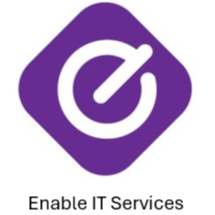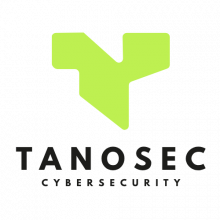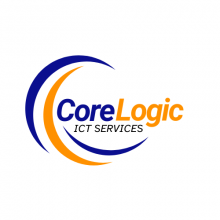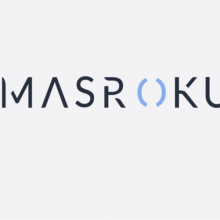
There are 30 Companies in South Africa
that provide Disaster Recovery Services!
The level of IT spending in South Africa is forecast to increase in 2025 at a higher pace than the economy did in 2020. Although the general state of the economy has a direct impact on the growth of the ICT sector, its customers continue to invest in technology, and the sector consistently shows a growth rate that is higher than GDP.
Discover Top IT Companies in South Africa specialized in Disaster Recovery and other related services. Find the best IT service providers for your projects.
Disaster recovery services are like a safety net for your business's data and operations. They help you prepare for unexpected events like natural disasters or cyberattacks, ensuring that you can quickly recover and continue your business even in challenging circumstances.
More than 327 verified IT companies specialize in providing disaster recovery services. These companies have expertise in creating and implementing strategies to protect your data and IT infrastructure. Well-known IT companies offering disaster recovery services include IBM, Dell Technologies, and Hewlett Packard Enterprise (HPE).
Handpicked companies • No obligation to hire • 100% risk-free
Featured Companies in South Africa
This month, the following Disaster Recovery companies managed to provide an outstanding service and support. It's worth taking a look.
Multi-award winning software development company in Pretoria, providing world-class software and mobile development services.

ASG IT Support Services Verified Company
Sandton, South Africa Head office in: South Africa
Since 1988, ASG has been providing professional flat-rate IT support services to businesses in South Africa. Essentially, your all-in-one IT provider.

PRETO BUSINESS Corp. Verified Company
Johannesburg, South Africa Head office in: United States
PRETO Business Corp.—a Public Affairs&Growth Hacking agency that employs a comprehensive approach to communication. VISION: WE RISE BY LIFTING OTHERS
Explore Top Disaster Recovery Companies in South Africa

Innov8ive Software Solutions (Pty) Ltd Verified Company
Sandton, South Africa Head office in: South Africa
We are in this business to help other small businesses grow and move forward. Its as simple as that. There is no catch, no gimmick, just experience.
Leading Website Design and Graphic Design

SevenC Managed IT Services Verified Company
Johannesburg, South Africa Head office in: South Africa
SevenC was founded in 1998 as a specialist IT Strategy and IT Support Services company in Sandton - Johannesburg, South Africa.
Get Inspired...
In the complex world of cloud computing, Dudobi helps you master the cloud. Our customised roadmaps guarantee hassle-free AWS.
Think like a hacker, secure like a pro — empowering businesses to stay ahead of cyber threats.
Services:
Our core purpose is to facilitate the adoption of technological advancements within businesses transforming the way business is conducted.
Established in 1999, We provide complete IT Services, Support and Sales to Micro, Small & Medium Enterprise Businesses and Companies in South Africa.

Persistent Systems Verified Company
Johannesburg, South Africa Head office in: India
See Beyond, Rise Above
Core Logic ICT delivers smart IT solutions/support, development, and digital services, engineered to keep your business connected & competitive.

Enable It Services Verified Company
Midrand, South Africa Head office in: Australia
Enable IT Services, based in Perth, provides managed IT services, cybersecurity, and cloud integration for reliable IT infrastructures.
Services:
TechTech provides managed IT, cloud & compliance solutions for businesses in Pretoria & JHB, ensuring secure growth.
Rysen Group is a dynamic IT company and trusted MSP delivering tailored tech solutions and support to businesses.
IT Corporation delivers secure, scalable managed IT services including Microsoft 365, cybersecurity, cloud solutions and proactive support.
Oc2Tech IT Solutions provides IT Solutions including, Cybersecurity, MSP, Internet, Email, VoIP, Support on IT Networks, Backup, Pastel, IQ Retail.
Empowering Business Growth Through Expert Managed Services, we Safeguard your Business
Unlimited 24/7 support at a fixed monthly cost. A trusted IT company in Durban. Reliable managed services & expert IT solutions for local businesses.

Johannesburg, South Africa Head office in: South Africa
We help small to medium-sized businesses implement and manage technology that drives digital transformation and moves people and business forward.

Cape Town, South Africa Head office in: South Africa
Westech - IT Support Company that offers a selection of on-site & off-site or outsourced IT Support & Maintenance plans. Software, Hardware & more
Carver Technology offers tailored IT solutions that boost efficiency and security, empowering your business to thrive in a digital world.
Masroku emerges as your strategic partner, offering tailored ICT solutions meticulously crafted to adapt seamlessly to the evolving needs.
- 1
- 2
Filter Disaster Recovery Companies in South Africa by Cities
Find the right tech company near you or from a specific city. Some of the best companies might be located in smaller cities.
Find more Disaster Recovery companies around the world
TechBehemoths is the world's most advanced and user-friendly platform to match IT Companies with real clients without hustle.
South African IT Industry: General Country Profile
The level of IT spending in South Africa is forecast to increase in 2025 at a higher pace than the economy did in 2020. Although the general state of the economy has a direct impact on the growth of the ICT sector, its customers continue to invest in technology, and the sector consistently shows a growth rate that is higher than GDP.
Cybersecurity is a high priority, with global statistics indicating that South Africa is the third most targeted country in the world for cyberattacks. Alleged IT-related procurement irregularities revealed through a number of commissions of inquiry and investigations continue to affect the reputation of some industry players. It is estimated that there are over 13,000 IT companies and over 3,000 electronics companies in South Africa, with the vast majority being small companies employing less than 50 people, according to Globe-News Wire.
Why Work With a South African IT Company
New and growing trends will provide significant opportunities for small and large players in the sector. These include growth in telecommunications, data center revenues and artificial intelligence, and the internet of things, where start-ups are expected to lead innovation. Digital transformation to improve customer experiences and online purchasing, fintech banking, blockchain, augmented reality, and virtual reality are some of the technologies that will disrupt the South African ICT industry in 2019. Improvements continue in 2025, with more than 120 million cellular mobile connections equal to 193% of the total population.
The industry is characterized by consolidation and convergence of companies within the IT sector, and between companies in the IT and telecommunications sectors.
What You Should Be Aware of When Working With South-African IT Companies
The growth projections of the IT market could be higher were it not for certain factors that seem to constrain it, including the cost sensitivity of customers, low expenditure by the public sector, market maturity, and bigger companies sourcing directly from the original equipment manufacturers.
IT market growth is also impeded by bigger companies that bypass IT vendors and go directly to OEMs for products and services. This impacts negatively on smaller companies that provide niche services within the broader IT sector.
How Reliable Are South African IT Companies
Despite the challenges facing the IT sector, its products and services have become part and parcel of everyday business and social life. The fast pace of innovation helps the sector to remain relevant while shaping the future of business and society.
How Does the South-African IT Industry Relate to the Neighboring Countries?
The South African IT market, comprising hardware, packaged software, and IT services submarkets, is regarded as one of the most developed and sophisticated within the continent. South African IT companies rank among world leaders in areas such as mobile software, electronic banking services, pre-payment, revenue management, fraud prevention systems, and the manufacture of set-top boxes, according to a report provided by the South African Department of Communications.
What is Disaster Recovery and what are its benefits for your projects?
Disaster recovery services are like a safety net for your business's data and operations. They help you prepare for unexpected events like natural disasters or cyberattacks, ensuring that you can quickly recover and continue your business even in challenging circumstances.
More than 327 verified IT companies specialize in providing disaster recovery services. These companies have expertise in creating and implementing strategies to protect your data and IT infrastructure. Well-known IT companies offering disaster recovery services include IBM, Dell Technologies, and Hewlett Packard Enterprise (HPE).
Disaster recovery service providers use a range of tools and technologies to safeguard data and ensure business continuity. These include backup and recovery software, cloud storage solutions, virtualization technologies, and monitoring systems. Popular cloud platforms like Amazon Web Services (AWS) and Microsoft Azure also play a crucial role in disaster recovery.
Disaster recovery services are typically included in a suite of services that also address business continuity and risk management. Other related services may include:
-
Business Continuity Planning: Developing comprehensive strategies to keep your business running during disruptions.
-
Cybersecurity Services: Protecting against cyber threats and data breaches, which are often a cause of disasters.
-
Risk Assessment: Identifying vulnerabilities and potential threats to your business.
-
Emergency Response Planning: Preparing for immediate actions in the event of a disaster.
-
Data Protection Services: Implementing data encryption, access controls, and data loss prevention measures.
Selecting the right IT company for disaster recovery services requires evaluating their experience, the comprehensiveness of their disaster recovery solutions, and their responsiveness in case of an emergency. Look for providers who offer tailored disaster recovery plans that align with your specific business needs and recovery time objectives (RTOs).
Disaster recovery service providers are essential for various projects and scenarios, including:
-
Data Centers: Ensuring the continuity of critical data center operations.
-
E-commerce Websites: Protecting online businesses from downtime due to technical issues or cyberattacks.
-
Healthcare Systems: Safeguarding patient records and medical systems to ensure uninterrupted care.
-
Financial Institutions: Meeting regulatory requirements for data protection and business continuity.
-
Manufacturing Plants: Minimizing production disruptions caused by equipment failures or supply chain interruptions.
Disaster recovery services are crucial for companies of all sizes and industries, including:
-
Small Businesses: Protecting essential data and ensuring minimal downtime.
-
Enterprises: Managing complex IT environments and maintaining regulatory compliance.
-
Healthcare Providers: Safeguarding patient records and critical medical systems.
-
Financial Institutions: Ensuring uninterrupted banking and financial services.
-
Government Organizations: Maintaining public services and data integrity during emergencies.
Disaster recovery is not a one-size-fits-all solution. It's essential to conduct a risk assessment and work with a disaster recovery service provider to develop a tailored plan that matches your business's specific needs and budget. Regular testing and updates of your disaster recovery plan are also crucial to ensure it remains effective as your business evolves.















